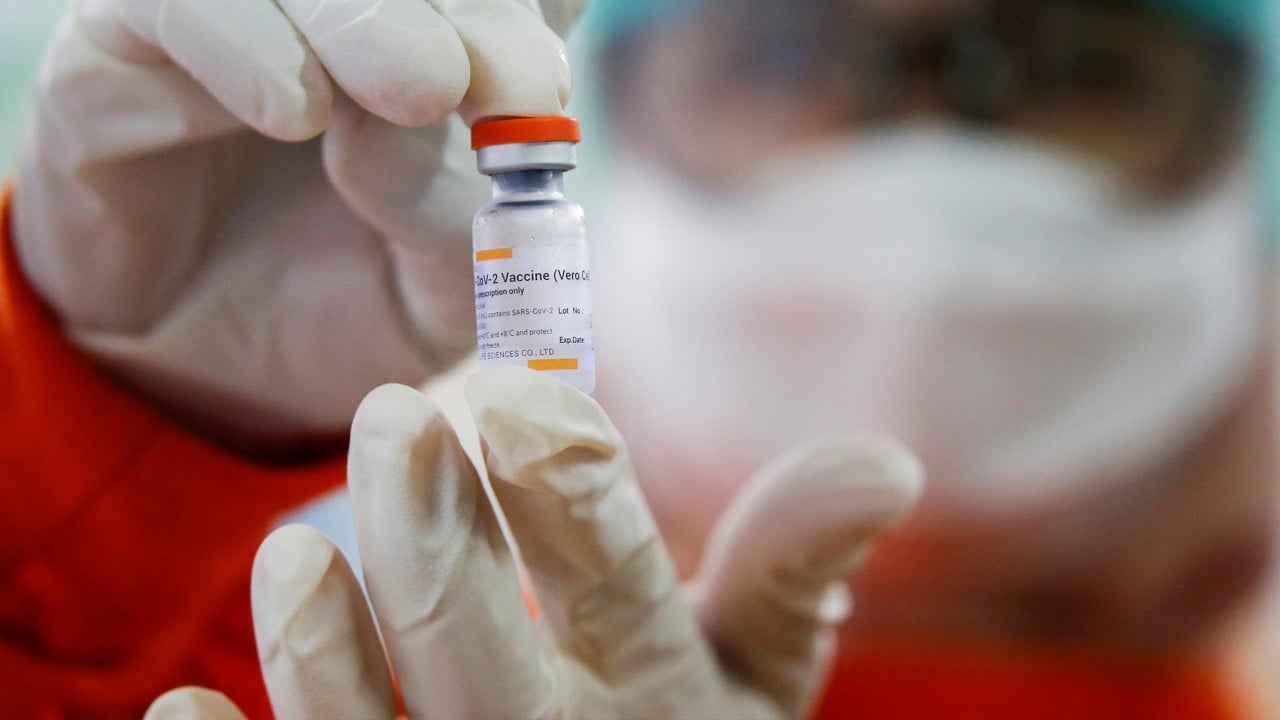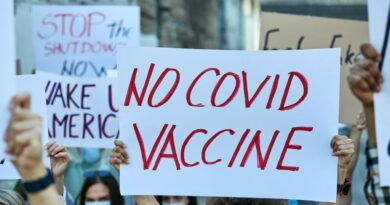America’s reputation has been bruised in many parts of the world due to its actions, from destabilising uncooperative governments, overruling the mandate of newly elected foreign leaders and, in extreme cases, invading other countries.
In recent years, its position has improved somewhat, not so much by its own doing but by those of its competitors and adversaries, which have shown they are not above pressuring foreign leaders, threatening outright hostilities or, as with
Russia’s invasion of Ukraine, making good on those threats.
The actions of Russia and China, for instance, help to show that while America’s reach and means may be unique among so-called global powers, its inability to mind its own business is sadly typical.
This streak of default good publicity had to end at some point, and
recent allegations that the US ran a covert campaign to encourage scepticism in the Philippines towards Covid-19 vaccines during the pandemic constitutes a clear embarrassment.
According to the June 14 Reuters report, the secretive initiative, launched in the waning days of the Trump administration, intended to erode confidence among the Philippine public towards vaccines – not just Chinese-made Sinovac jabs but vaccines in general. “COVID came from China and the VACCINE also came from China, don’t trust China!” one such tweet read in Tagalog.

01:30
WHO approves Sinovac Biotech’s coronavirus vaccine for emergency use
WHO approves Sinovac Biotech’s coronavirus vaccine for emergency use
First, it must be reiterated that this was a Trump administration initiative that the Biden administration
discontinued in early 2021. Second, there will certainly be attempts by Donald Trump’s supporters and other foreign policy “realists” to dismiss the ethical concerns related to such measures, arguing that Chinese influence in the Philippines was harmful under the dovish administration of Rodrigo Duterte.
They may also argue that the efficacy of Chinese-made vaccines was less than worthy of confidence, and that China is in no position to decry others’ use of disinformation campaigns.
A mountain of evidence suggests Beijing has used its extensive
“50-cent gang”, for example, to spread false and misleading messages at both ends of the Pacific, as well as to allegedly influence elections and
undermine confidence. The Philippines has reportedly been a target of such influence operations.
Furthermore, there are real concerns about how useful the Sinovac jab was, with Singapore’s National Centre for Infectious Diseases, for instance, saying its efficacy trailed far behind that of the Pfizer or Moderna vaccine.
But the issues related to Chinese-made vaccines and efforts to misinform the public in the Philippines are among the reasons the alleged US covert campaign was a mistake.
At the time, late in the Duterte administration, frustration among the Philippine public was already boiling over towards Chinese activity in the South China Sea and
Duterte’s appeasement. Unhappiness with his China policy ultimately led to the election of Ferdinand Marcos Jnr, another right-of-centre candidate less willing to accommodate Beijing.

15:04
Why is the Philippines aligning itself with the US after years of close China ties under Duterte
Why is the Philippines aligning itself with the US after years of close China ties under Duterte
Also, the US could have placed its trust in the ingenuity of its scientists to produce a better vaccine than China’s – the Singaporean centre’s report evaluated the Sinovac vaccine’s efficacy against severe disease at just 60 per cent, compared to Moderna’s 97 per cent and Pfizer’s 90 per cent.
A realist argument for efforts to undermine China and its vaccines in the Philippines therefore fails due to a lack of, well, realism, as Beijing’s actions and methods would have accomplished that on its own.
But arguments against covert programmes to mislead the public in other countries cannot merely be pragmatic. We live in a time of
democratic backsliding in much of the world, a process aided by widespread efforts in democratic countries to undermine public confidence and social cohesion through rumours, half-truths and outright deceit.
The US has established new government agencies, including the Global Engagement Centre in the State Department, to fight such trends and promote fact-based narratives. Such efforts may ring hollow now – though it is somewhat fortunate for the US that this took place in the Philippines, and that Beijing’s conduct near
Second Thomas Shoal continues to provide a distraction.

02:26
Philippines seeks expulsion of Beijing diplomats over South China Sea wiretapping controversy
Philippines seeks expulsion of Beijing diplomats over South China Sea wiretapping controversy
Furthermore, whatever one thinks of the Sinovac jab, it is simply unconscionable for a US administration to undermine public confidence in a partner country towards vaccination. Even a 60-per-cent-effective vaccine would have constituted an improvement in 2020 and 2021, when Covid-19 infections were claiming thousands of lives daily. In the Philippines alone, more than 60,000 would die of the disease before the worst had passed.
At the height of the pandemic, the argument from health professionals was that a vaccine was our quickest way out of the international public-health crisis. The Trump administration did the important work of promoting rapid vaccine deployment through
“Operation Warp Speed”, making safe and effective treatment for Covid-19 available in a relatively short span of time.
Unfortunately, its alleged covert campaign might also have contributed to a vaccine hesitancy in Philippines that is higher than its neighbours’. The bad press will probably outlive Trump, while attempts to paint it as a Trump-era policy will probably count for little, given the overarching continuity in US policy towards China, with tariffs, prohibitions on tech cooperation and expansions of security partnerships designed to rein in China’s ambitions.
Those of us who still support a US-led world order should encourage better from our leaders, including a possible second Trump administration. US-led efforts to preserve a free and open Indo-Pacific depend on Washington’s ability to build partnerships in the region – a willingness to put lives in other countries at risk is poison for such partnerships.
Rob York is programme director for regional affairs at the Pacific Forum
***
This article has been archived by Conspiracy Resource for your research. The original version from
South China Morning Post can be found
here.





